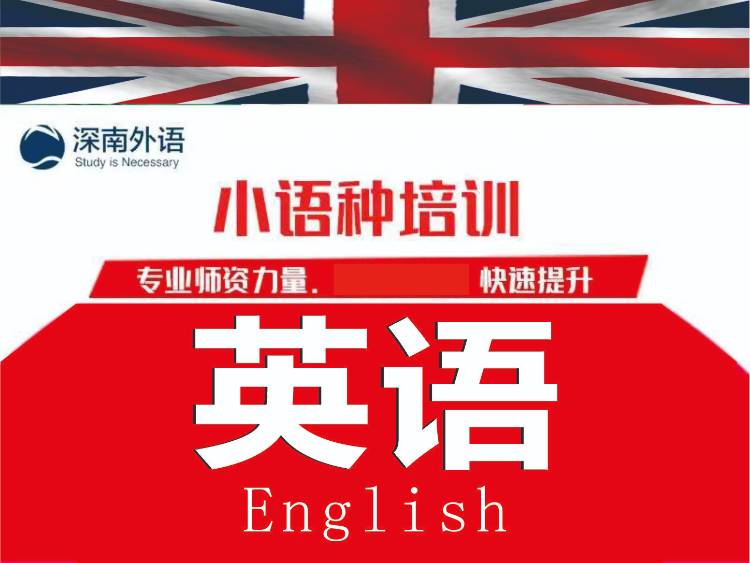筆譯實務:徐宏談中國政府就菲律賓所提南海仲裁案發表管轄權
發布者:網上發布
外交部條約法律司司長徐宏談中國就菲律賓所提南海仲裁案發表管轄權問題立場文件
Remarks by Mr. Xu Hong, Director-General of the Department of Treaty and Law of the Ministry of Foreign Affairs, on the Position Paper of the Government of the People’s Republic of China on the Matter of Jurisdiction in the South China Sea Arbitration Initiated by the Republic of the Philippines
2014年12月7日,外交部受權發表中國關于菲律賓所提南海仲裁案管轄權問題的立場文件。外交部條約法律司司長徐宏就此接受了記者的專訪。
On 7 December 2014, the Ministry of Foreign Affairs of the People’s Republic of China is authorized to release the Position Paper of the Government of the People’s Republic of China on the Matter of Jurisdiction in the South China Sea Arbitration Initiated by the Republic of the Philippines. Mr. Xu Hong, Director-General of the Department of Treaty and Law of the Foreign Ministry, gave an interview to the Xinhua News Agency on this occasion.
記者:為什么我國要針對菲律賓所提南海仲裁案就管轄權問題發表立場文件?
Xinhua: Why does our government need to publish a position paper on the matter of jurisdiction in the South China Sea arbitration initiated by the Philippines?
徐宏:2013年1月22日,菲律賓單方面就中菲有關南海問題提起國際仲裁。中國對此堅決反對,一再申明中國不接受、不參與仲裁的嚴正立場。
Xu Hong: On 22 January 2013, the Philippines unilaterally initiated international arbitral proceedings regarding the dispute with China in the South China Sea. The Chinese Government is firmly opposed to that, and has reiterated on several occasions its firm position not to accept or participate in the arbitration.
菲律賓不顧中國的強烈反對,執意推進仲裁程序。一些人士不明真相,對中國不接受、不參與仲裁表示疑惑。還有人別有用心,片面或歪曲解讀有關國際法規則,藉此指責或影射中國不遵守國際法,妄稱中國為國際規則的“挑戰者”。
Despite China’s strong objection, the Philippines has been obstinately pushing forward the arbitral proceedings. Some people, who do not know the truth, have questioned China’s position of not accepting or participating in the arbitration. Some others, who harbor ulterior motives, have made one-sided and misleading readings of international rules and, on that basis, made accusations or insinuations that China does not abide by international law, and perversely branded China as a “challenger” to international rules.
針對這些情況,中國發表立場文件,從法律上闡明中國認為仲裁庭沒有管轄權的立場和理據,闡明中國不接受、不參與該仲裁有充分的國際法依據,以匡正視聽。
In response to this situation and with a view to clearing up the confusion, the Chinese Government publishes the Position Paper to elaborate on the legal basis for China’s position that the Arbitral Tribunal manifestly has no jurisdiction in this case and to demonstrate that China’s position not to accept or participate in the proceedings stands on solid ground in international law.
記者:我國的立場文件明確指出,仲裁庭對于菲律賓提起的仲裁沒有管轄權。這一立場的主要依據是什么?
Xinhua: Our government’s Position Paper clearly states that the Arbitral Tribunal has no jurisdiction in the arbitration initiated by the Philippines. What are the grounds for this position?
徐宏:仲裁庭對菲律賓提起的仲裁沒有管轄權,這是十分明顯的,立場文件主要從三個方面加以論述。
Xu Hong: It is quite obvious that the Arbitral Tribunal has no jurisdiction in the arbitration. The Position Paper presents this view by making analyses from the following three aspects.
一是從菲律賓提請仲裁事項的實質來分析。菲律賓提出的仲裁事項本質上是領土問題,而領土問題超出了《聯合國海洋法公約》(下稱“《公約》”)的范疇。《公約》框架下的強制爭端解決程序僅限于處理有關《公約》解釋或適用的爭端,無權處理《公約》以外的事項。
First, the essence of the Philippines’ claims. The subject-matter of the Philippines’ claims is in essence an issue of territorial sovereignty, which, however, goes beyond the scope of the United Nations Convention on the Law of the Sea (“Convention”). The dispute settlement procedures within the framework of the Convention are only confined to disputes concerning the interpretation or application of the Convention and therefore are not competent to address a matter falling outside the scope of the Convention.
二是從中菲之間已經達成的協議來分析。中菲兩國之間通過一系列雙邊和多邊文件,已經就通過友好磋商和談判的方式解決在南海的爭端達成共識,排除了其他方式。這是雙方之間的國際法義務。菲律賓單方面就有關爭端提起仲裁,違反了兩國之間的協議,違反了國際法。
Second, the bilateral agreement reached between China and the Philippines concerning this issue. Through a series of bilateral and multilateral instruments, China and the Philippines have agreed to settle their disputes in the South China Sea through friendly consultations and negotiations, to the exclusion of all other means. This is a mutual obligation binding on the two States under international law. By unilaterally submitting the dispute to arbitration, the Philippines has breached the agreement between the two States and violated international law.
三是從《公約》本身的爭端解決條款來分析。即使菲律賓提出的仲裁事項在某些方面可能被認為涉及有關《公約》解釋或適用的問題,但它也是中菲海域劃界不可分割的組成部分,而中國已于2006年根據《公約》第二百九十八條作出聲明,將涉及海域劃界等事項的爭端排除適用仲裁等強制爭端解決程序。
Third, the dispute settlement clauses of the Convention itself. Even if the subject-matter of the Philippines’ claims could be considered in part as concerning the interpretation or application of the Convention, it constitutes an integral part of maritime delimitation between China and the Philippines. However, China has already excluded, through a declaration made in 2006 pursuant to Article 298 of the Convention, disputes concerning maritime delimitation, inter alia, from the application of arbitration and other compulsory procedures.
從上述三個方面可以清楚地看出,仲裁庭對菲律賓提出的仲裁事項明顯沒有管轄權。
It follows from the above three points that the Arbitral Tribunal manifestly has no jurisdiction over the claims that the Philippines has submitted for arbitration.
記者:有一種觀點認為,菲律賓提起仲裁是依據《公約》的規定,仲裁本身也是和平解決爭端的方式;中國是《公約》締約國,也一貫主張和平解決國際爭端,但卻不接受、不參與該仲裁,令人難以信服。請問對此有何評論?
Xinhua: There is one view saying that the arbitration the Philippines has initiated pursuant to the Convention is in itself a peaceful means of dispute settlement; yet, China, a party to the Convention and a champion of peaceful settlement of international disputes, has refused to accept or participate in this arbitration. This makes China’s stand look unconvincing. How would you comment on this?
徐宏:國家之間和平解決爭端的方式有很多,其中*主要、*優先的方式是當事國直接談判,而非仲裁。
Xu Hong: States have at their disposal many ways of resolving disputes peacefully. The most important and preferred means is direct negotiation between the State parties to a dispute, rather than arbitration.
根據國際法,選擇何種方式解決爭端是各當事國的權利。國際仲裁只是其中的一種方式,而且這種方式必須遵循“國家同意”原則,以當事各國的同意為基礎。在一個雙邊爭議中,如果一方不接受、不參與仲裁,另一方不得強行提起仲裁。
Under international law, it is the sovereign right of the States concerned to choose a means of dispute settlement. Arbitration is only one of the means, and it must be based on the principle of consent. In a bilateral dispute, if one party does not accept or participate in arbitration, the other party shall not institute arbitration against its will.
《公約》雖然規定了強制仲裁等強制爭端解決程序,但適用這類程序是有條件和限制的。這類程序只能用于處理有關《公約》解釋或適用的爭端;如果當事國之間自行選擇了其他的爭端解決方式,也優先于這類強制程序;一方當事國還可根據《公約》作出聲明,將特定事項排除適用強制爭端解決程序。
Although the Convention provides for arbitration and other compulsory procedures for dispute settlement, recourse to this category of procedures is subject to conditions and constraints. This category of procedures can only be employed to settle disputes concerning the interpretation or application of the Convention. If the State parties to a dispute have chosen other means of dispute settlement of their own accord, the chosen means has priority over this category of procedures. Furthermore, a State party may also make a declaration pursuant to the Convention to exclude specified categories of disputes from the application of the compulsory procedures.
對于菲律賓提起的仲裁,如前所談,仲裁事項的實質是根本不屬于《公約》調整范圍的領土問題;中菲之間已達成通過談判解決有關爭端的協議;而且中國從未就有關爭端接受強制程序。因此,菲律賓單方面提起強制仲裁顯然是濫用《公約》規定的強制爭端解決程序。國際上不應該提倡這種做法。中國不接受、不參與菲律賓提起的仲裁,是捍衛自主選擇爭端解決方式的權利,是行使國際法所賦予的權利,有充分的國際法依據。
Regarding the arbitration initiated by the Philippines, as discussed above, the essence of the subject-matter of its claims is territorial sovereignty, an issue completely beyond the scope of the Convention. China and the Philippines have reached agreement to settle their relevant disputes through negotiation. And China has never accepted any compulsory procedures for the relevant disputes. It follows that the unilateral initiation of compulsory arbitration by the Philippines is a clear abuse of the compulsory procedures provided for in the Convention. Such a practice is and should be frowned upon internationally. By refusing to accept or participate in the arbitration initiated by the Philippines China is defending its sovereign right to choose a means of dispute settlement of its free will. Our decision is an exercise of the rights we enjoy under international law, and is well founded on international law.
記者:菲律賓的核心訴求涉及中國依據南海斷續線所主張的權利,國際上也有一些聲音希望中國依據國際法澄清南海斷續線的含義,而立場文件并未回答這些問題,請問是如何考慮的?
Xinhua: A core claim made by the Philippines concerns the maritime rights China asserts on the basis of the dotted line in the South China Sea. Some voices in the world have expressed the hope that China clarify the meaning of the dotted line. But the Position Paper does not answer these questions. What are the considerations behind this?
徐宏:1948年,中國在地圖上標繪了南海斷續線。立場文件在敘述有關南海問題的歷史經緯時提及這一史實。
Xu Hong: In 1948, the Chinese Government published an official map that displayed the dotted line in the South China Sea. The Position Paper does mention this fact when setting out the historical background to the relevant dispute in the South China Sea.
中國在有關問題上的立場是一貫的、明確的。中國對南海諸島及其附近海域擁有無可爭辯的。中國在南海的和權益是在長期的歷史過程中形成和發展起來的,有充分的歷史和法律依據,一直為中國所堅持。
China’s position on the relevant issue is consistent and clear. China has indisputable sovereignty over the South China Sea Islands and the adjacent waters. China’s sovereignty and maritime rights and interests in the South China Sea have formed and evolved over a long course of history. They are solidly grounded in history and law and have been continuously upheld by the Chinese Government.
在不接受、不參與菲律賓所提仲裁的前提下,中國的立場文件闡明了仲裁庭對于仲裁案沒有管轄權,而不就仲裁事項所涉實體問題作出回應。這一點在立場文件的引言部分作了清楚的說明。
Given China’s decision not to accept or participate in the arbitration, the Position Paper of the Chinese Government only expounds on its view that the Arbitral Tribunal has no jurisdiction over this case. It does not address the substantive issues involved in the arbitration. This point is made very clear in the introduction of the Position Paper.
記者:據了解,仲裁庭要求中國于今年12月15日前提交辯訴狀。我國選擇在這個時機發表立場文件,是否可理解為是對仲裁庭上述要求的回應?立場文件的發表會對仲裁庭發揮何種作用?
Xinhua: It has been learned that the Arbitral Tribunal requested that China submit its counter-memorial before 15 December of this year. Our government has chosen to publish the Position Paper at this juncture. May the Position Paper be considered as a response to the request of the Arbitral Tribunal? What effect will the Position Paper have on the Arbitral Tribunal?
徐宏:中國的立場文件不是關于仲裁案的辯訴狀,也不是針對仲裁庭的要求作出的回應。發表立場文件,不意味著中國接受或參與菲律賓提起的仲裁。中國不接受、不參與該仲裁的立場不會改變。
Xu Hong: The Position Paper of the Chinese Government is neither a counter-memorial on the arbitration nor a response to the request of the Arbitral Tribunal. The publication of the Position Paper does not represent China’s acceptance of or participation in the arbitration initiated by the Philippines. China’s position not to accept or participate in the arbitration will not change.
中國發表立場文件,針對仲裁案管轄權問題闡述法律觀點和理據,從法律上反駁了菲律賓的無理主張,也彰顯了中國維護和促進國際法治的形象。我相信,任何真正秉持法治精神的機構和人士都會尊重和理解中國的立場。
The Chinese Government publishes this Position Paper in order to set forth its legal positions, together with due reasoning and support, on the matter of jurisdiction in this arbitration. On the basis of international law, this Position Paper debunks the Philippines’ groundless assertions and projects China’s image as a defender and promoter of the international rule of law. I believe that any organ or individual that conscientiously upholds the rule of law will respect and appreciate the stand of the Chinese Government.
記者:我國發表立場文件,對處理南海有關爭端、維護南海的和平穩定有何積極意義?
Xinhua: What positive effect will the publication of the Position Paper have on the settlement of relevant disputes in the South China Sea and the maintenance of peace and stability in the South China Sea?
徐宏:立場文件從法律上闡明,為什么仲裁庭對于菲律賓單方面提起的強制仲裁沒有管轄權,為什么中國不接受、不參與仲裁于法有據。立場文件同時強調,談判始終是國際法認可的和平解決國際爭端*直接、*有效和*普遍的方式。它向國際社會傳遞一種信息:有關國家要妥善解決在南海的爭端,強加于人行不通,磋商談判是正道。
Xu Hong: The Position Paper elucidates legally why the Arbitral Tribunal has no jurisdiction over the compulsory arbitration unilaterally initiated by the Philippines and why China’s decision not to accept or participate in the arbitration is well grounded in law. At the same time, the Position Paper stresses that negotiation is recognized by international law as the most direct, most effective and most frequently used means of peaceful settlement of international disputes. It sends a message to the international community that the relevant countries must properly handle their disputes in the South China Sea; any attempt to impose one’s will on others will get nowhere, and consultation and negotiation is the right way forward.
正如立場文件所指出的那樣,通過談判,中國已與絕大多數陸地鄰國徹底解決了邊界問題,也與越南劃定了兩國在北部灣的海上邊界。事實證明,存在分歧不可怕,問題復雜也不可怕,只要相關國家秉持善意,在平等的基礎上進行友好磋商和談判,就可以增進互信、積累共識,逐步妥善解決領土爭端和海域劃界問題。處理南海問題理應如此。
As pointed out in the Position Paper, through negotiation China has settled its land boundary with almost all of its neighbours and has delimited its maritime boundary in Beibu Bay with Vietnam. Facts have shown that the existence of differences is nothing to be afraid of, neither is the complexity of the issues. As long as the relevant countries have the goodwill and engage in friendly consultations and negotiations on an equal footing, they can enhance mutual trust, expand common understanding and gradually and properly settle their territorial and maritime delimitation disputes. The same is true with the South China Sea issue.
中國敦促菲律賓盡快回到通過談判解決爭議的正確軌道上來。中國也愿與有關各國一道,在尊重歷史事實和國際法的基礎上,通過談判妥處分歧,加強合作追求共贏,共同維護南海的和平穩定。
China urges the Philippines to return as soon as possible to the right track of negotiation to settle the disputes. China is also ready to work with all relevant countries to properly resolve their disputes through negotiation and on the basis of respect for historical facts and international law, and strengthen win-win cooperation, to jointly maintain peace and stability in the South China Sea.












